QuestionI have a pair of Bourkes , very much in love.. they fly with bengalese, redpoles... and pair of tourquisines.. Mrs bourke has laid four eggs, in box and mrs tourq has gone to same box. i have split boxes up. and bourke has gone into box with no eggs and MrsTourq goes in where bourke was.Mrs Bourke was not sitting on them should i shift them or leave alone.. would they be clear... Bourkes happy going into other box now.appreciate advise please.
AnswerHi, Kate. Thanks for posting your question.
I do not recommend keeping more than one pair of pair-bonded birds in the same cage, especially if they are different species/subspecies of birds and you want to breed them. Too many bad things can happen. Aviary/colony breeding works in some species/subspecies of parrots and can be disasterious in others. Or even with the same species of parrot...unless you've bred them this way before, you don't know what another female parrot will do in an colony breeding setup when another bird has laid eggs/has babies and the other female doesn't. Another female may break the eggs of another pair, may eat/kill the other's hatched babies, and/or even kill the other female parrot that laid the eggs because the second female wants those eggs/babies for herself. In other words, I would not have put up any nestboxes in a cage/aviary containing more than 1 pair of bonded parrots. Putting up a nestbox is a signal to a pair of bonded parrots that it's time to mate/breed. The safest way to colony breed is to put up twice as many nestboxes in the colony as you have bonded pairs and then this can be risky. I would have split the pairs up into separate breeding cages when I decided to let them breed or put up more nestboxes.
Now that you have the eggs and the 2 birds have "switched" nestboxes, you can try moving the eggs to the box the mother has now taken occupancy in (don't touch the eggs with your bare hands...use a glove or something so the oil from your skin doesn't clog up the pores in the eggs)...this may or may not work (maybe she doesn't want those eggs or if she had incubated them longer than 18-21 days, maybe they weren't fertile or died in the shell). If the eggs have cooled down (female let them go cold for more than about 30-60 minutes maximum during the incubation process, depending on the ambient temperature in the nestbox), they will most likely not develop (be clear). You can check this (called candling) when the eggs are about 10 days old (do this 10 days AFTER the hen started incubating them). Shine a light (flashlight, penlight, etc.) through the eggs (either when they are in the nestbox or take them out carefully one by one) and if they look clear (like a chicken egg out of your refrigerator), they aren't fertile. If they are dark, you can see veins or something inside, they could be fertile. If you think they might be fertile, try moving them and see what happens. If the female incubated them for 3 weeks and they haven't hatched, they most likely aren't going to hatch.
Sometimes, another parrot hen will incubate, hatch, feed, care for another parrot's clutch of babies. But this is usually the exception to the rule. Depends on the particular parrot and species...some species feed babies differently than other species, i.e., both parents share in incubating, feeding, and caring for the babies. In some species, the male will feed the female and guard the outside of the nestbox and cage, and then the female cares for the babies and keeps watch over the inside of the nestbox. I've don't have any experience with Bourkes, so I don't know if they behave like the smaller parakeets/budgies, or if they behave like the larger parakeets, such as the Quaker/Monk parakeets.
To summarize, you can try moving the eggs and see what happens, but this depends on how old the eggs are (how far into the incubation process they were) and whether they might still be viable (did they get too cold). It would take about 18 days AFTER incubation began (female started sitting on them all the time) for the eggs to hatch if they were/are going to hatch. If this time has come and gone, they most likely are not viable.
Come back if you have more questions. Thanks.
Chrys

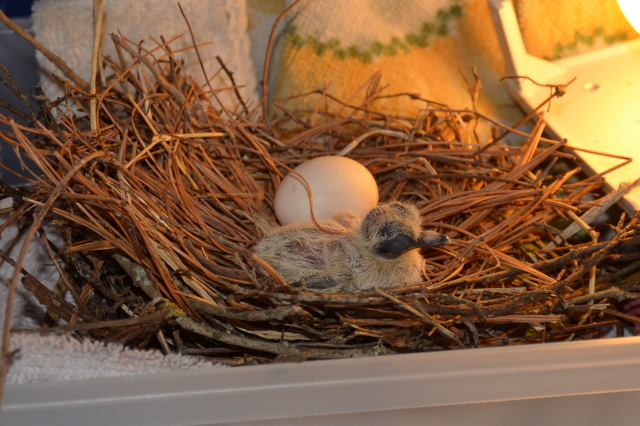 mourning dove
Question
baby mourning dove
Hello,
My boys found a baby
mourning dove
Question
baby mourning dove
Hello,
My boys found a baby
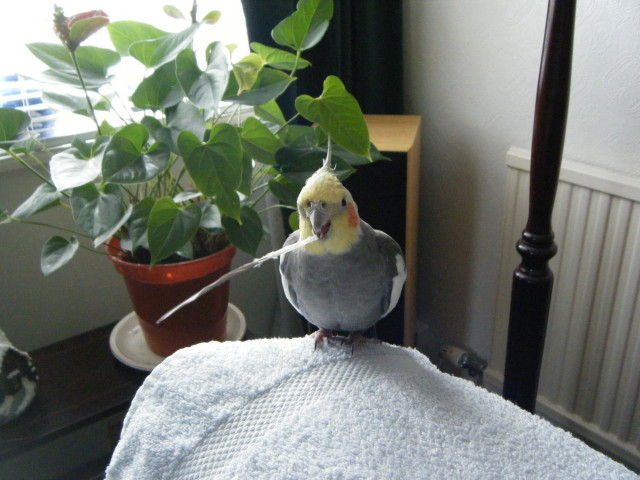 boris the cockatiel
Question
boris
Hello , I have a male cockatiel called b
boris the cockatiel
Question
boris
Hello , I have a male cockatiel called b
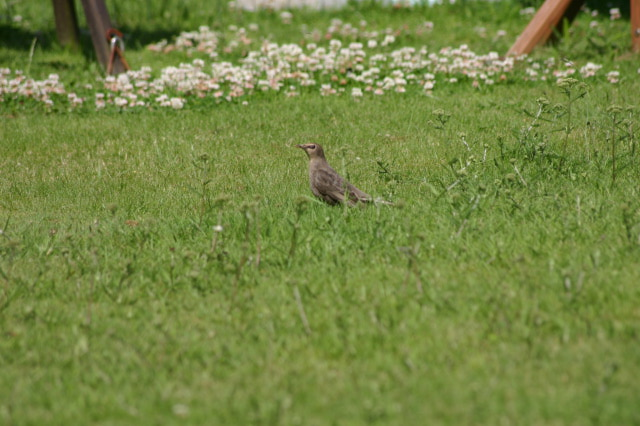 Identification of a bird
Question
Bird name
Please can you advise what th
Identification of a bird
Question
Bird name
Please can you advise what th
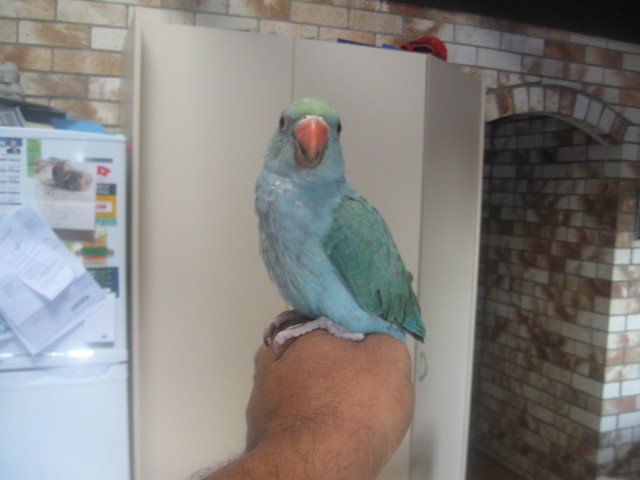 Color of my indian ringneck
Question
Boots
I have an eleven week old male ringneck
Color of my indian ringneck
Question
Boots
I have an eleven week old male ringneck
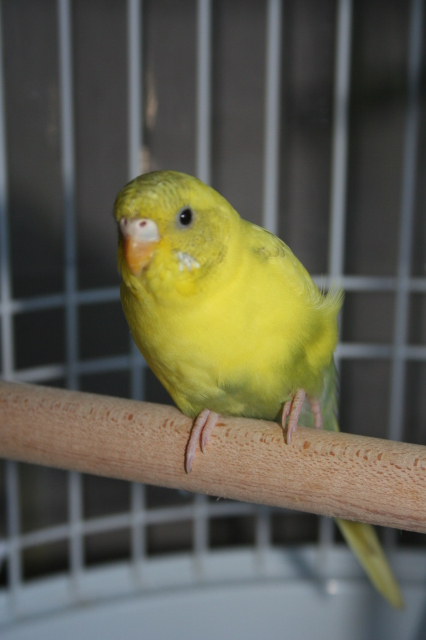 Budgie has broken foot?
Question
Maggies foot
Hi there! I got a baby budgie a f
Budgie has broken foot?
Question
Maggies foot
Hi there! I got a baby budgie a f